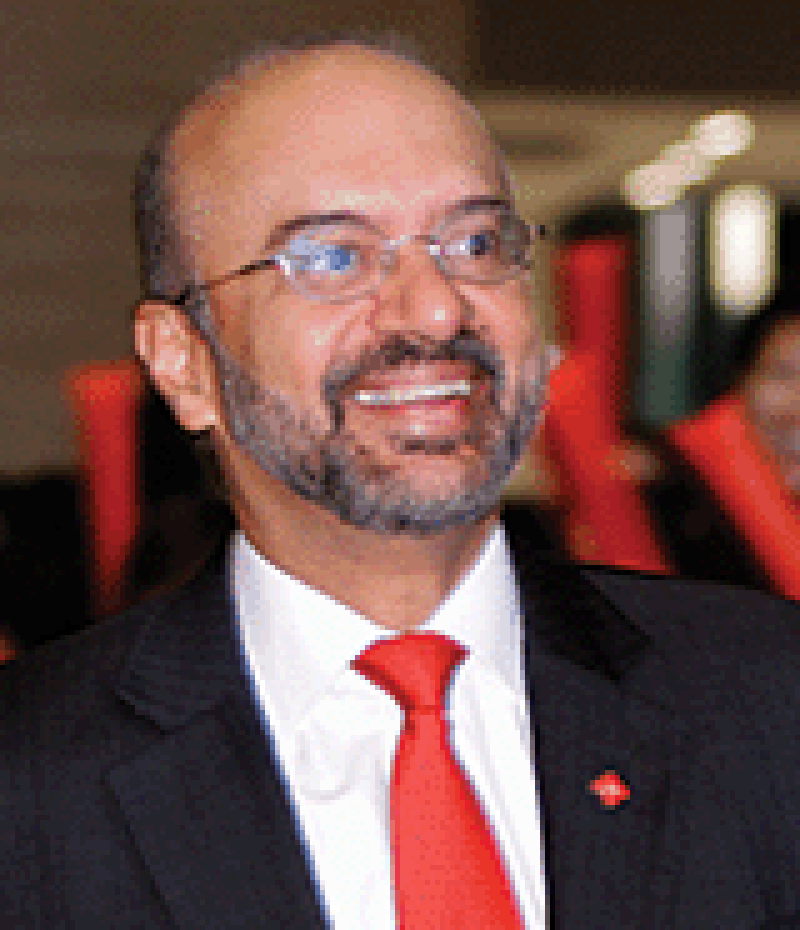Awards for Excellence 2016

|
Also shortlisted: |
BBVA |
Citi |
ING |
No conversation with DBS CEO Piyush Gupta goes far without turning to digital innovation or, as he puts it, re-imagining banking, as in: “If we don’t completely reimagine banking we’re going to die.” To Gupta the banking world is full of threats, from Alibaba to Google, and only those banks that get ahead of the trend will thrive, or even survive. But Gupta also sees the threat as an opportunity.
Lots of executives talk about innovation in technology but what is striking about DBS is the depth to which it is ingrained in the bank’s 22,000 staff. John Laurens, for example, an HSBC transaction services veteran who now runs that business at DBS, was struck when he arrived by a level of engagement with innovative thinking he had not seen before.
From Gupta’s point of view, approaching it this way is practical; top-down leadership is one thing, but if you really want to change a whole culture, it also has to come from the bottom and everywhere in between.
Of course, DBS is not the only bank trying to achieve this. In its first year as a category, the award for the world’s best digital bank was one of the hardest-fought of all. BBVA, based in Spain but operating a tech-savvy business around the world, has put digital at the heart of its business for more than a decade under its visionary executive chairman, Francisco González – Euromoney’s banker of the year for 2016.
ING was the first bank in Europe to truly make a success of an online-only bank with its ING Direct platform. It continues to lead on the continent where others follow. Citi made a strong case for this award, notably in the way it uses tech innovation in both its consumer and wholesale businesses. If this award were limited to global universal banks, then Citi would win it.
The numbers around DBS’s digital journey are impressive in their own right. Nearly S$5 billion ($3.7 billion) has already been invested in digital strategies – more than the bank’s entire net profit for 2015. Some 70% of all transactions in Singapore are digital.
But it goes much further than pure numbers. Leaders in digital banking talk about the difference between digitizing aspects of a bank and creating a truly digital financial institution. DBS is doing this better than any other bank.

|
Piyush Gupta, DBS |
It is demonstrably the case that digital innovation pervades every part of the bank, from consumer to corporate, SMEs to transaction banking and even the bank’s charitable foundation. About half of Singapore’s population transacts online with DBS, and more than a quarter by mobile. The bank is committed to working with fintechs, funding incubators and accelerators and even incorporating hackathons into its internal talent development programmes. It is outside Singapore that the sense of DBS’s digital vision becomes clear. The Digibank launch in India is a landmark, India’s first mobile-only bank that is paperless, branchless and involves no signatures. This is potentially transformative – a level of automation that supposedly could attract five million customers using less staff than a typical outlet of McDonald’s.
Digibank grasps an opportunity created by the Aadhaar biometric card, which stores the details of a billion Indians, and the financial infrastructure built on top of it. Thanks to this identification, there is no need for branches; accounts can be opened at 500 cafes across India, among other places. Customers converse with an artificial intelligence-powered assistant created in partnership with Kasisto, a fintech spin-off from the institute that created Siri. It is so low-cost that DBS can offer an introductory interest rate of 7% and still make a profit.
It is simple, but no other multinational has done it. Nandan Nilekani, co-founder of Infosys and former chairman of the Unique Identification Authority of India, calls it “a WhatsApp moment of banking”.
And the DBS vision is to do it again and again, dispensing with the need for cumbersome international acquisitions or organic branch growth. Both China and Indonesia are believed to have similar programmes to Aadhaar underway – albeit in Indonesia’s case through facial recognition technology – providing a similar foundation for digital banking growth.
“This is not just doing an app: we’ve been doing mobile banking for 15 years,” Gupta says. “It’s not about a bank putting out another channel. This is a clean sheet of paper.”